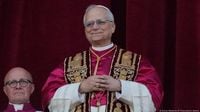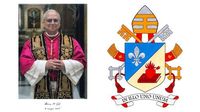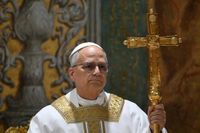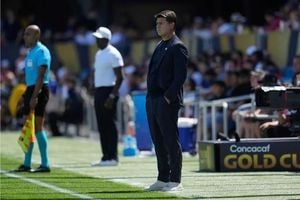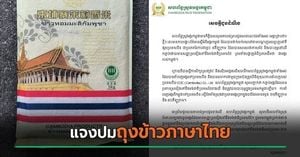In a historic turn of events, the Catholic Church has welcomed its first-ever American pope, Robert Francis Prevost, who has chosen the name Leo XIV. His election, confirmed on May 8, 2025, marks a significant milestone in the church’s history, as he takes the mantle following the death of Pope Francis on April 21, 2025, due to a stroke.
Prevost’s ascent to the papacy was seen as somewhat unexpected, despite his name being floated among potential successors. According to The Washington Post, he was a stronger candidate than many outside the Vatican believed. While Cardinal Pietro Parolin was initially considered the favorite, Prevost quickly garnered significant support from a group of Latin American cardinals eager to continue the legacy of the late Pope Francis.
Cardinal Wilton Daniel Gregory remarked on Prevost's ability to engage effectively in discussions, noting that he had a knack for connecting with others in smaller settings. Cardinal Robert Walter McElroy of Washington pointed out that Prevost’s American identity played a minimal role in the conclave discussions, emphasizing that in many respects, he was not viewed as a typical American. Instead, he is recognized for his deep commitment to pastoral care, particularly during his time in Peru, where he became a citizen and dedicated himself to the local church.
Cardinal Michael Czerny highlighted that Prevost's missionary work in Peru positioned him as a dedicated shepherd rather than merely an American cleric. This background was crucial, as some cardinals expressed concerns about Parolin's lack of pastoral experience, particularly after witnessing his scripted sermon to 200,000 Catholics the day after Pope Francis's funeral.
Prevost’s election comes at a time when the Vatican faces significant financial challenges. Cardinal Blaise Joseph Cupich stated that the church is keenly aware of the Holy See's financial stability, and Prevost is seen as a capable manager who can navigate these issues effectively.
Upon his election, Leo XIV visited the tomb of Pope Francis in the Basilica of Santa Maria Maggiore, where he prayed before the tomb and the icon of the Virgin Mary. This act of homage underscores his commitment to honoring the legacy of his predecessor.
Born on September 14, 1955, in Chicago, Prevost spent a significant part of his life outside the United States. After his ordination in 1982, he served in Peru, becoming a prominent figure in the Augustinian order. His journey took him to Rome in 2001, where he became the General Prior of the Augustinians, and later, in 2014, he was appointed bishop of Chiclayo by Pope Francis.
In recent years, Prevost has held influential positions within the Vatican, including being appointed head of the Dicastery for Bishops and chairman of the Pontifical Commission for Latin America. His elevation to cardinal in September 2023 set the stage for his eventual election as pope.
Observers believe that Leo XIV is likely to continue many of Pope Francis's policies, particularly regarding social issues. However, he has expressed more conservative views on certain topics, such as the ordination of women, stating that it does not necessarily resolve underlying issues but may create new ones.
As Leo XIV, he has already indicated a strong commitment to supporting Ukraine, a stance he had taken even before his election. Bishop Vitaliy Kryvytskyi of the Kyiv-Zhytomyr Diocese expressed confidence that Ukraine would benefit from Prevost's papacy, noting that he consistently mentioned Ukraine in his sermons and conferences.
In his first address from the balcony of St. Peter’s Basilica, Leo XIV projected an image of accessibility and closeness to his flock, reminiscent of his predecessor. This is particularly significant as he navigates the complexities of leading the Catholic Church in a rapidly changing world.
Looking ahead, Leo XIV faces pressing challenges, including the upcoming 1700th anniversary of the Council of Nicaea, an event of immense importance for Christians. Plans for a trip to Nicaea, originally intended by Pope Francis, must now be reconsidered under the new papacy.
Additionally, the canonization of Carlo Acutis, a teenager who died of leukemia, has been postponed due to the previous pope’s death. The ceremony will now take place during Leo XIV's papacy.
As he takes on these responsibilities, the new pope also faces scrutiny regarding allegations of past misconduct. Just before his election, the Survivors Network of Those Abused by Priests (SNAP) raised concerns about Prevost’s involvement in cases of alleged cover-ups. Prevost has denied all accusations, asserting his commitment to transparency and accountability.
While Leo XIV's election is seen as a hopeful new chapter for the Catholic Church, it also presents a complex landscape of challenges and expectations. His ability to foster unity within the church, address pressing social issues, and navigate the financial difficulties of the Vatican will be closely monitored by both supporters and critics alike.
As the first American pope, Prevost's unique background and experiences may provide fresh perspectives on the church's role in contemporary society. Whether he can successfully balance tradition with the need for reform remains to be seen, but the world is watching closely as he embarks on this monumental journey.
